Capturing Leviathans
Santa Barbara–Based Wildlife Cameraman Adam Ernster on Documenting the Planet’s Largest Animals
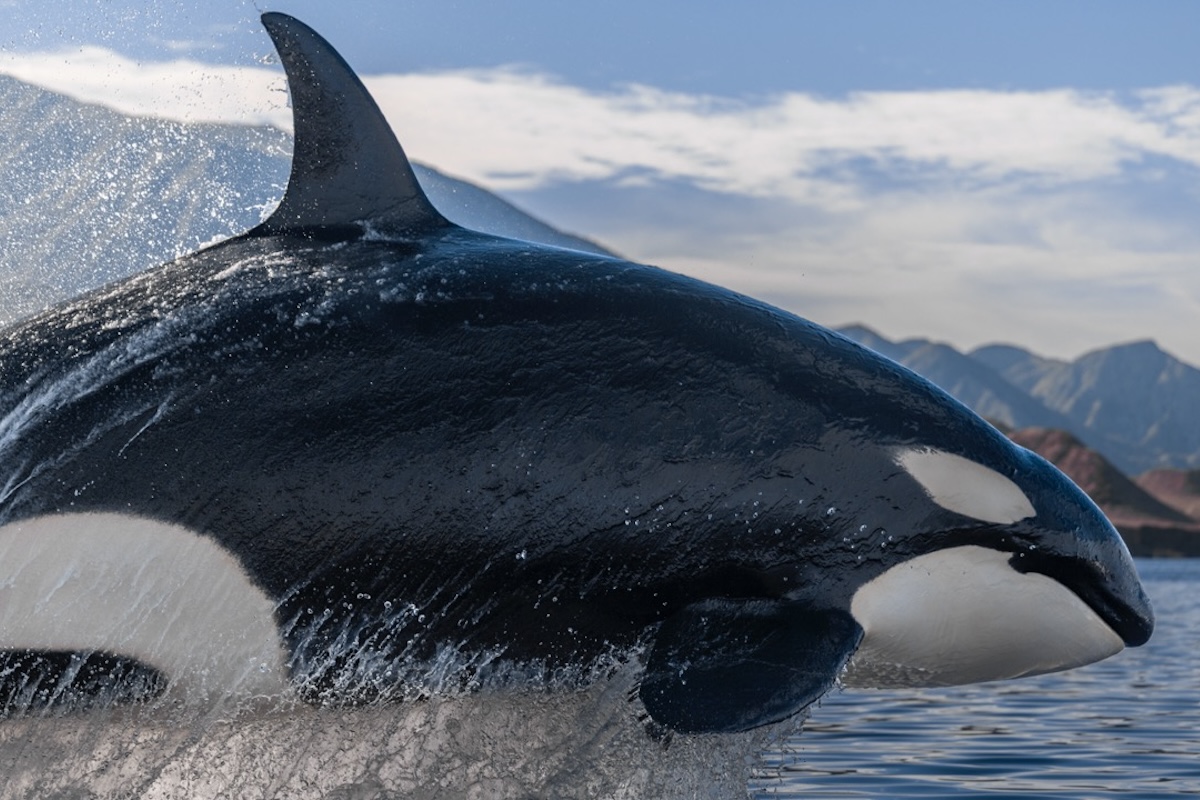
When you’ve averaged 250 days a year on the ocean over the last six years, filming whales and dolphins like wildlife cameraman Adam Ernster has, it might be difficult choosing your most memorable marine mammal encounter.
However, in a recent text, Ernster quickly described a transient orca pod in detail, the CA51s, sighted from the Condor Express during the week of Christmas 2021. The Santa Barbara Channel was teeming with migrating gray whales and other cetaceans. Known as “the friendly pod,” the matriarch is known as “Star.” She has two sons, “Orion” and “Bumper.” Her 11-year-old daughter, “Comet,” and youngest calf, “Nebula,” were all present as they attempted to take down an adult sea lion.
“However, our presence must’ve piqued their interest,” recalled Ernster. “For the next two hours, these whales rolled around our boat, vocalized around us, and stared straight into our souls.”
Ernster said Nebula, snuggled up on top of her mom, delighted in her family’s comfortability right next to the boat. Comet continually spy-hopped around the crowded vessel, staring directly into the eyes of the astonished onlookers.

“Eye to eye with a wild killer whale was something I had never experienced before,” he said. “It forged a connection to a wild animal I had never felt before and haven’t felt again after. Her inquisitive nature really shined on a stunning day in the Santa Barbara Channel.”
Committed to the Core
It’s not often at such a young age that we know what we want to do in our professional lives. At just 26, Ernster knew years prior he was destined to film and document the planet’s largest animals.
“I have had a deep-rooted connection to wildlife since I was a young boy,” he said recently from a shoot filming whales and dolphins in the Sea of Cortez. “I was inspired by the nature documentaries I grew up watching. Creating media surrounding the incredible wildlife of our planet has always been my dream.”
Ernster grew up in Orlando, Florida, from age 3-7 and had the benefit of having a lake in the backyard of his family home. It served as a virtual outdoor classroom, fascinating a young boy with a microcosm of organisms at his fingertips. Hours were spent handling snakes, turtles, and other scaly critters. It’s what stoked the embers for the oceans he explores today, especially the Santa Barbara Channel. Ernster also cites the late, great Crocodile Hunter, Steve Irwin, as an early mentor.
“I have always wanted to be a wildlife host like Steve, but have since taken a role behind the camera. I still hope to one day host my own wildlife series,” he said.
Fueling the Fire
It was a two-week marine biology course down on Bahía de los Ángeles in Baja California that cemented Ernster’s commitment and involvement with marine mammals. During the course, he encountered seldom-seen Bryde’s whales and animated bottlenose dolphins.
“That solidified my love for wildlife,” said Ernster, who earned a degree in environmental studies from UCSB in 2022. “I became totally hooked on marine wildlife.”
To support his endeavors through college, Ernster took a job as a deckhand, naturalist, and social media manager for Condor Express Whale Watching in the Santa Barbara Harbor. Today he’s a full-time wildlife cameraman, working for different ecotour companies as well as the same wildlife productions that inspired him as a boy. Also impressive, to make his dream a reality, he’s self-taught behind the camera.
It’s Never Enough
Over the last several years, Ernster has worked on a lot of big projects like Rick Rosenthal’s PBS special Planet California, and National Geographic’s America’s National Parks. Most other days are spent filming marine mammals for Santa Barbara Whale Watch, one of Ernster’s main clients. Social media has become a big part of his clientele and business, so posting on different social channels eats up a good part of his day. Ernster is also the media director for the newly designated Santa Barbara Channel Whale Heritage Area.
While traveling for a shoot, he’s up early to film all day. Whether it’s salmon and bears on the Alaskan frontier, or Mobula rays in the deserts of Baja, his days constantly revolve around the oceans searching for activity. In between shoots, there’s daily maintenance on camera gear, and offloading and backing up footage, tasks required for what lies ahead.






“While it is no easy task, filming wildlife is the only thing on this planet that helps me feel like my true self,” he said. “I’ve spent every day of my life over the last six years on the ocean or editing media behind the scenes.”
As his documentation of cetaceans continues, one of his most valuable lessons has been observing the behavior of the world’s largest creatures.
“Allocating all of my days to learning the behavior of the subjects I film has been by far the most beneficial tool in my back pocket,” said Ernster. “Able to anticipate wildlife behavior allows me to capture incredible wildlife spectacles that can be shared across the world. I do have a super cool job, but it’s not without its hindrances. Long days blend into one another, and sometimes the ocean and its inhabitants don’t cooperate. It takes a lot of patience, getting up early and going to bed late, and a whole bunch of being in the right place at the right time. Still, it’s worth it.”
But more than anything else, a great day of filming on the water, with the Santa Barbara Channel being a great example, is all predicated by the weather. Scouring for and filming whales and dolphins is all dependent on the weather. “I am constantly chasing good weather and nice sea conditions,” he continued. “Good sea conditions allow me to search far and wide for nature’s greatest marine spectacles. Bad weather makes filming extremely hard and finding wildlife even harder.”
Premier Events
Thu, Nov 28
12:00 PM
Santa Barbara
Thanksgiving Dinner at The Harbor Restaurant
Fri, Nov 22
11:00 AM
Santa Barbara
Santa Barbara Antique & Vintage Show & Sale
Fri, Nov 22
6:00 PM
Santa Barbara
Introduction to Crochet Workshop
Fri, Nov 22
7:30 PM
Carpinteria
Rod Stewart VS. Rolling Stones Tribute Show
Fri, Nov 22
9:00 PM
Santa Barbara
Numbskull Presents: Jakob’s Castle
Sat, Nov 23
11:00 AM
Santa Barbara
Santa Barbara Antique & Vintage Show & Sale
Sat, Nov 23
12:00 PM
Santa Barbara
Fall 2024 Healing Arts Faire
Sat, Nov 23
7:30 PM
Santa Barbara
SBCC Theatre Arts Department presents “Mrs. Bob Cratchit’s Wild Christmas Binge”
Sun, Nov 24
11:00 AM
Santa Barbara
Santa Barbara Antique & Vintage Show & Sale
Sun, Nov 24
6:00 PM
Santa Barbara
¡Viva el Arte de Santa Bárbara! Mariachi Garibaldi de Jaime Cuellar
Sun, Dec 01
5:00 PM
Santa Barbara
Paseo Nuevo Tree Lighting Ceremony
Thu, Nov 28 12:00 PM
Santa Barbara
Thanksgiving Dinner at The Harbor Restaurant
Fri, Nov 22 11:00 AM
Santa Barbara
Santa Barbara Antique & Vintage Show & Sale
Fri, Nov 22 6:00 PM
Santa Barbara
Introduction to Crochet Workshop
Fri, Nov 22 7:30 PM
Carpinteria
Rod Stewart VS. Rolling Stones Tribute Show
Fri, Nov 22 9:00 PM
Santa Barbara
Numbskull Presents: Jakob’s Castle
Sat, Nov 23 11:00 AM
Santa Barbara
Santa Barbara Antique & Vintage Show & Sale
Sat, Nov 23 12:00 PM
Santa Barbara
Fall 2024 Healing Arts Faire
Sat, Nov 23 7:30 PM
Santa Barbara
SBCC Theatre Arts Department presents “Mrs. Bob Cratchit’s Wild Christmas Binge”
Sun, Nov 24 11:00 AM
Santa Barbara
Santa Barbara Antique & Vintage Show & Sale
Sun, Nov 24 6:00 PM
Santa Barbara
¡Viva el Arte de Santa Bárbara! Mariachi Garibaldi de Jaime Cuellar
Sun, Dec 01 5:00 PM
Santa Barbara








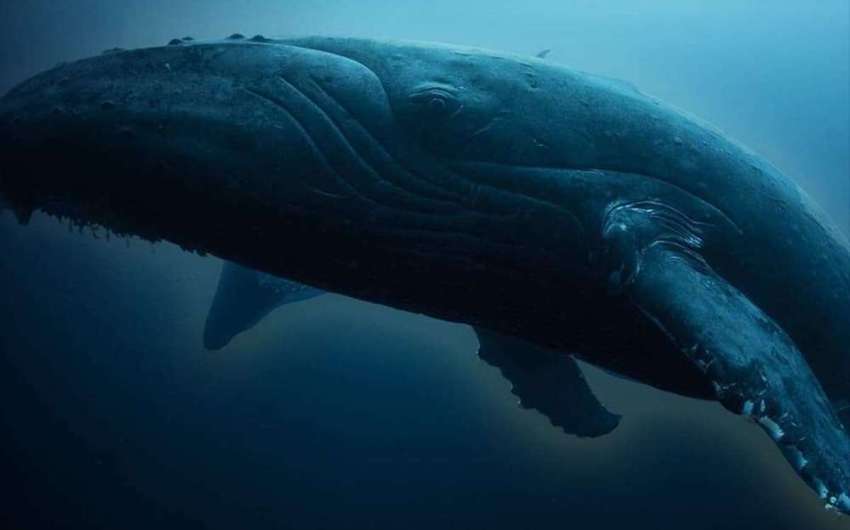


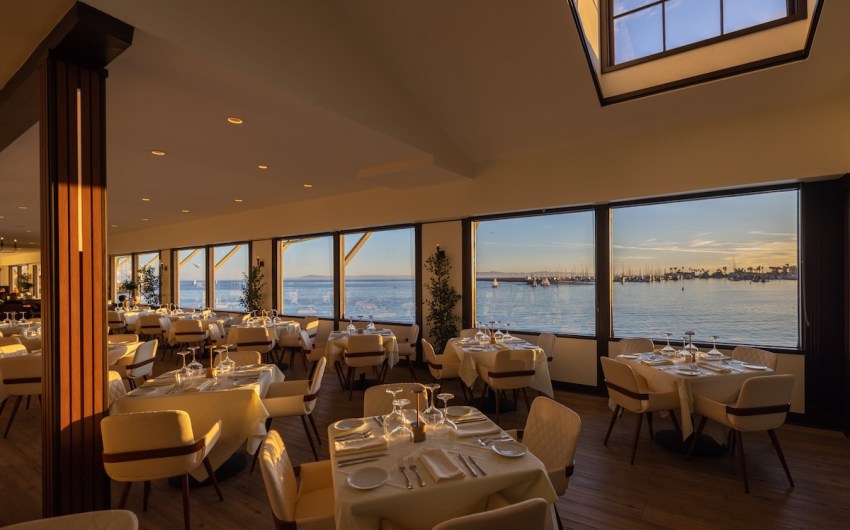

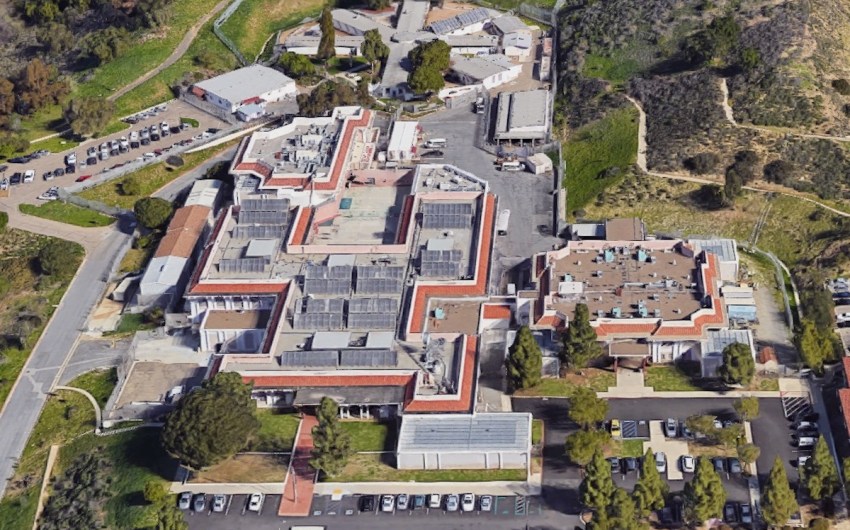

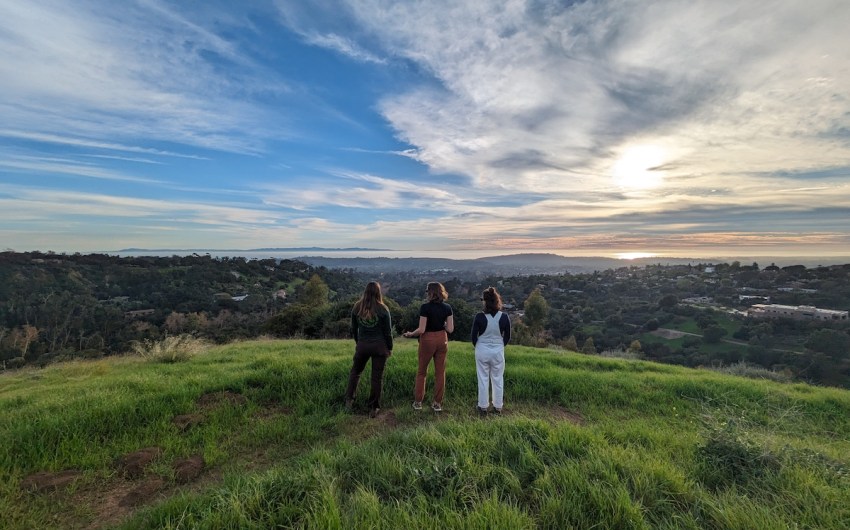

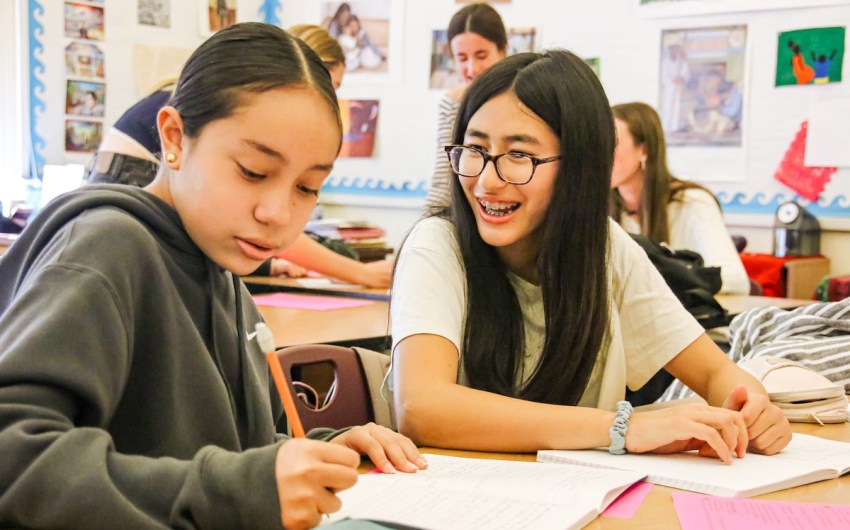
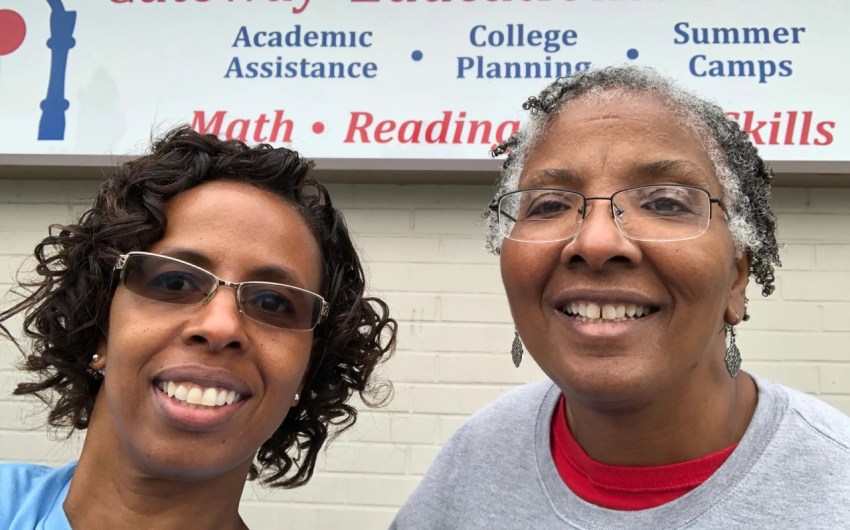










You must be logged in to post a comment.